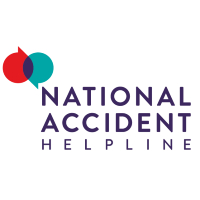 New data from National Accident Helpline, the UK’s leading provider of personal injury services has revealed that Brits are resigned to the self-driving takeover but nearly half (39%) disagree that the current laws are adequate to address the technology.
New data from National Accident Helpline, the UK’s leading provider of personal injury services has revealed that Brits are resigned to the self-driving takeover but nearly half (39%) disagree that the current laws are adequate to address the technology.
Amongst people aged 55+, this figure rises to 54%, the highest across any demographic and on the other end, across 25-34 year olds, the figure is the lowest across any demographic, with only 19% disagreeing that current laws are inadequate.
On average, respondents believe that fully autonomous vehicles requiring no human intervention will become the predominant mode of transportation on public roads in 15.57 years.
The poll of 2,000 people, conducted by Censuswide confirmed that over a quarter (26%) of people aged 25-34 expect to purchase a self-driving vehicle in the next 1-3 years.
Brits are calling for an overhaul of the current driving system with nearly 60% (59%) of respondents agreeing that drivers should require a new license to drive a self-driving car and that self-driving cars should be required to pass more stringent safety tests than human-driven vehicles (78%).
In the case of a collision or traffic accident, 41% of respondents are extremely concerned about potential personal injury from self-driving car accidents and 17% believe the car manufacturer would be at fault if a self-driving car crashed into a manually driven car, raising questions around liability.
Over half (55%) would be more likely to make an insurance claim if the other car involved was self-driving, suggesting a current aversion to claiming against other drivers.
While insurance premiums are calculated by assessing risk, nearly half (47%) of Brits believe that owners of self-driving vehicles should pay higher insurance premiums. John Kushnick, Legal Operations Director at National Accident Helpline, says:
“What’s fascinating is that many people express safety concerns about self-driving cars, yet often overlook how unsafe human drivers actually are. This highlights a clear gap in public understanding – most accidents are caused by human error, not technology.
Over a third of respondents said they’d trust autopilot on planes more than a self-driving car, but again, that comes down to familiarity and education. Automation is already making travel safer, and public attitudes will likely shift over time, just as they did with autopilot in planes.
Liability, however, remains a key question. With autonomous vehicles, it’s likely that manufacturers will bear more responsibility. The benefit is that these cars will record everything, making it easier to establish fault. However, we’ll need to rethink how insurance works when the human is no longer in control – does the policy belong to the person or the machine?
While some people say they’d be more likely to make a claim if the other vehicle was self-driving, perhaps because they feel less guilt than if a human were involved, it remains of utmost importance to remember that in either case, claims are made against insurance companies, not individuals.
Overall, educating people will be key in the next few years, before self-driving vehicles officially take over UK roads.”










